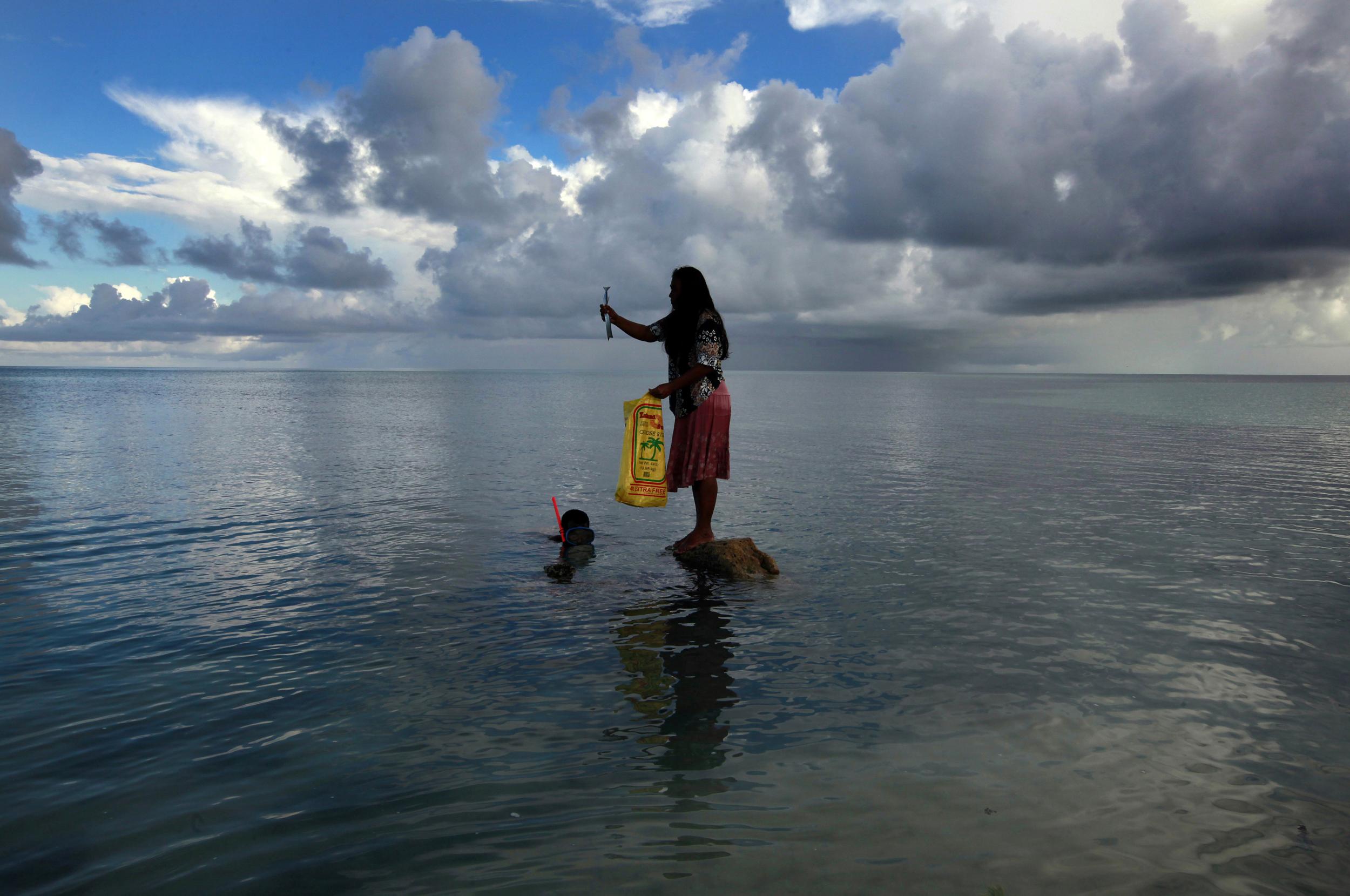Pacific Islands could lose 80 per cent of their fish because of climate change
It is projected that the region to become warmer, less oxygenated, more acidic and have lower production of plankton that form the base of oceanic food webs

Your support helps us to tell the story
From reproductive rights to climate change to Big Tech, The Independent is on the ground when the story is developing. Whether it's investigating the financials of Elon Musk's pro-Trump PAC or producing our latest documentary, 'The A Word', which shines a light on the American women fighting for reproductive rights, we know how important it is to parse out the facts from the messaging.
At such a critical moment in US history, we need reporters on the ground. Your donation allows us to keep sending journalists to speak to both sides of the story.
The Independent is trusted by Americans across the entire political spectrum. And unlike many other quality news outlets, we choose not to lock Americans out of our reporting and analysis with paywalls. We believe quality journalism should be available to everyone, paid for by those who can afford it.
Your support makes all the difference.Pacific Island nations could lose as much as 80 per cent of their fish by the end of the century, as climate change causes species to go extinct, a new study warned.
The region is "projected to become warmer, less oxygenated, more acidic, and have lower production of plankton that form the base of oceanic food webs," said lead author Rebecca Asch, an assistant professor at East Carolina University.
Together with other academics at the Nippon Foundation-Nereus Program - a global initiative which investigates sustainability in the world's oceans - she studied more than a thousand species to see how they were reacting to changes in the ocean.
She added: "We found that local extinction of marine species exceeded 50 per cent of current biodiversity levels across many regions and at times reached levels over 80 per cent."
The study was published in the Marine Policy journal.
The study's authors warned of the consequences of the extinction of so many fish, pointing out that Pacific Islanders rely on them for protein and economic opportunities. The ocean around them is already the warmest on earth.
This change is not inevitable "but instead depend(s) on the immediate actions of all countries to materialise their commitment to limit greenhouse gas emissions," said the study's co-author William Cheung, director of science at the Nereus Program.
The findings come after Pope Francis met a delegation of Pacific leaders in the Vatican and told them he shares their concerns about rising sea levels and increasingly intense weather systems that are threatening their small islands.
While there are several causes at fault, the pontiff warned, "sadly, many of them are due to short-sighted human activity connected with certain ways of exploiting natural and human resources, the impact of which ultimately reaches the ocean bed itself."
Additional reporting by agencies.
Join our commenting forum
Join thought-provoking conversations, follow other Independent readers and see their replies
Comments